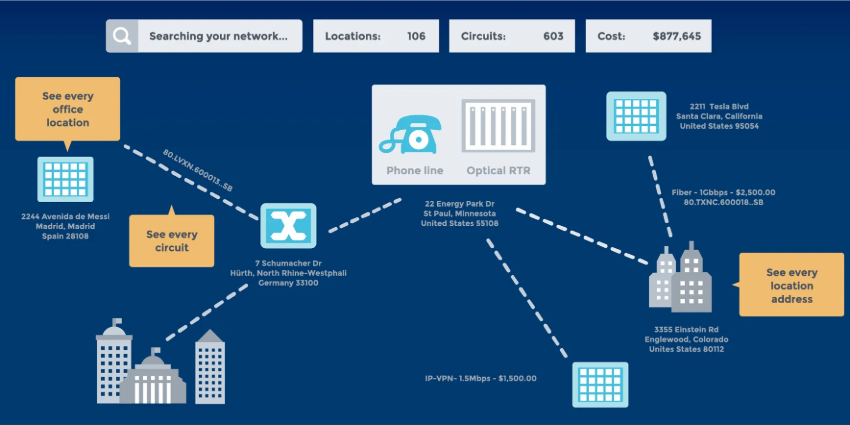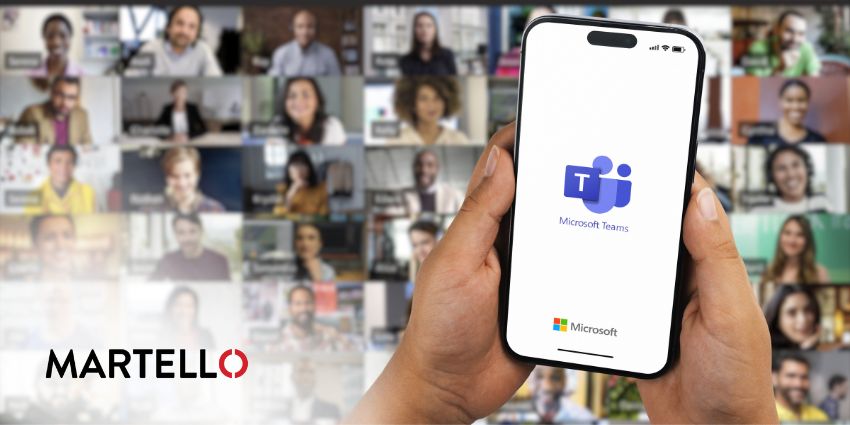RingCentral is a globally recognised, publicly traded leading provider of software-as-a-service, or SaaS, solutions for business communications. RingCentral’s innovative, cloud-based approach disrupts the large market for business communications solutions by providing flexible and cost-effective services that support distributed workforces, mobile employees and the proliferation of ‘bring-your-own’ communications devices.
RingCentral enables convenient and effective communications for its customers across all their locations, all their employees, all the time, by unifying communication through mobile and desktop devices, text messaging, audio, video and web conferencing as well as collaborating on projects with document sharing and team messaging from a single, easy-to-use carrier-grade SaaS platform.
Further, through its development of application programming interfaces (API’s), RingCentral enables integration of its platform with other cloud solutions to provide many off-the-shelf integrations to help today’s workforce be more productive. RingCentral markets and sells its subscriptions directly, through its website and inside sales teams, as well as indirectly through a network of over 4,000 active sales agents and resellers whom RingCentral has direct relationships, including AT&T.
RingCentral’s network of resellers includes master agents who manage other sales agents and resellers, resulting in an even larger reseller network. In addition, TELUS Communications Company, is a reseller of RingCentral’s cloud solutions in Canada and British Telecom (BT), is a reseller in the United Kingdom.
A Brief History of RingCentral
Vladimir (Vlad) Shmunis founded RingCentral in 1999 with the idea of using the power of cloud technologies to reimagine business communications solutions. The vision was to deliver solutions that met the need of the rapidly changing business environment of mobile and distributed workforces. Under Shmunis, RingCentral has grown up from a startup company funded in 2006 with a $12 million series A round led by Sequoia and Khosla Ventures to a publicly traded NYSE listed company with nearly $500 million revenue run rate in 2017.
In 2017, Forbes profiled Shmunis as a leader in disrupting a unified communications market projected to grow to $143 billion by 2024. Today, RingCentral is used by more than 350,000 businesses worldwide and has been recognised as the largest and fastest-growing global pure-cloud communications solutions provider and was most recently ranked #1 in cloud communications solutions by Synergy Research in 2017.
RingCentral has also been named a leader in the Gartner Magic Quadrant Unified Communications as a Service Worldwide 2015, 2016 and 2017, UCaaS Company of the Year by Frost & Sullivan in 2017, and a leader in the IHS UCaaS Scorecard 2017.
- 1999: RingCentral founded
- 2003: RingCentral’s launches its cloud phone system
- 2006: Cloud computing became a buzz-word thanks to Google’s introduction
- 2009: RingCentral UK presence established
- 2010: RingCentral becomes a World Economic Forum Technology Pioneer
- 2012: RingCentral begins its partnership with AT&T
- 2013: RingCentral completes its IPO and appears on the NY stock exchange
- 2014: RingCentral partners with BT
Today, RingCentral have evolved to become a substantial company in the world of communications, with over 350,000 customers, and 1,400 staff members. RingCentral’s corporate headquarters are based in Belmont, California with additional North American offices in Colorado, North Carolina and Florida.
RingCentral’s European Headquarters are based in London with additional offices in Ireland, Netherlands and France. Additional international offices are based in Canada and China.
The Unified Communications Portfolio
RingCentral currently offers three products: RingCentral Office, RingCentral Contact Centre and RingCentral Glip. RingCentral Office: RingCentral’s flagship product, is a multi-location, multi-user, enterprise-grade communications solution that enables employees to communicate via different channels and on multiple devices.
This subscription is designed primarily for businesses that require a communication solution, regardless of location, type of device, expertise, size or budget. Businesses can seamlessly connect users working in multiple office locations on smartphones, tablets PCs and desk phones. RingCentral Office is available in three editions: Standard, Premium, and Enterprise.
RingCentral Contact Centre: Provides a cloud based contact centre solution that delivers omnichannel capabilities so businesses can allow customers to engage in the manner they prefer. The solution leverages technology from inContact, Inc., and has a comprehensive feature set that integrates with RingCentral Office. This enables businesses to build customer loyalty and increase productivity by resolving customer issues faster and more effectively.
RingCentral Glip: RingCentral’s team messaging and collaboration solution, which allows diverse teams to stay connected through multiple modes of communication through an integration with RingCentral Office. In addition to using Glip for team messaging and communications, teams can share tasks, notes, group calendars, and files. Glip is designed for distributed and mobile teams and offers out-of-the-box integrations with many leading cloud business applications such as Asana, Dropbox, Evernote, JIRA, Github, Google and others. Because there are no maintenance contracts or capital investments required, customer costs are minimised with RingCentral’s cloud technology- providing a unique alternative to traditional on-Premise PBX.
A Rich Set of Features
RingCentral Office key features include:
- A range of phone number options
- Phone services that can be easily administered among a range of diverse calling options, including desktop apps and VoIP services
- HD voice and video
- Web conferencing
- Call management features such as answering rules, call forwarding, automatic call recording, presence, call flip, call park, call screening, visual voicemail
- Business SMS
- Team messaging and collaboration
- Business analytics and reporting
- Out-of-the-box integrations with other cloud based business applications such as Box, Dropbox, Google for Work, Office365, Outlook, Salesforce CRM, Zendesk, and Desk.com
- The ability to create, develop and deploy custom applications using RingCentral’s Application Programming Interfaces (APIs)
- More advanced call routing for larger customers with multiple business units
All editions also vary in the number of included minutes and number of concurrent video and web conference meeting attendees as well as mobility options through RingCentral apps for iOS, Android, and Desktop. RingCentral Office customers also have available to them RingCentral Global Office, where multinational businesses can appear local for their regional customers whilst also acting as one integrated business, with capabilities including local phone numbers, local caller ID, worldwide extension-to-extension dialing, and included minute bundles for international calling. RingCentral Contact Centre key features include:
- Standard IVR and ACD
- Omnichannel capabilities
- Advanced IVR and skills-based routing
- Outbound features such as: preview dialler, progression dialler, predictive dialler, campaign management
RingCentral Glip key features include:
- Real-time text, voice, and video conferencing
- Drag and drop files for instant sharing and feedback
- Task manager and scheduler
- Application integration
In summary, an exciting company to watch in the cloud communications space. Read our latest RingCentral articles here.







